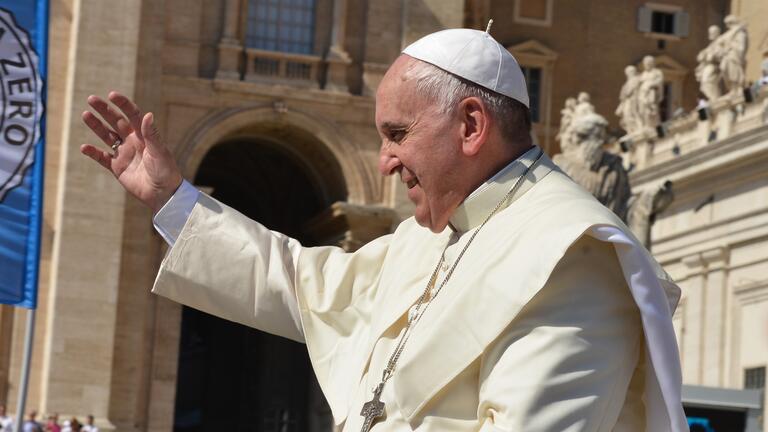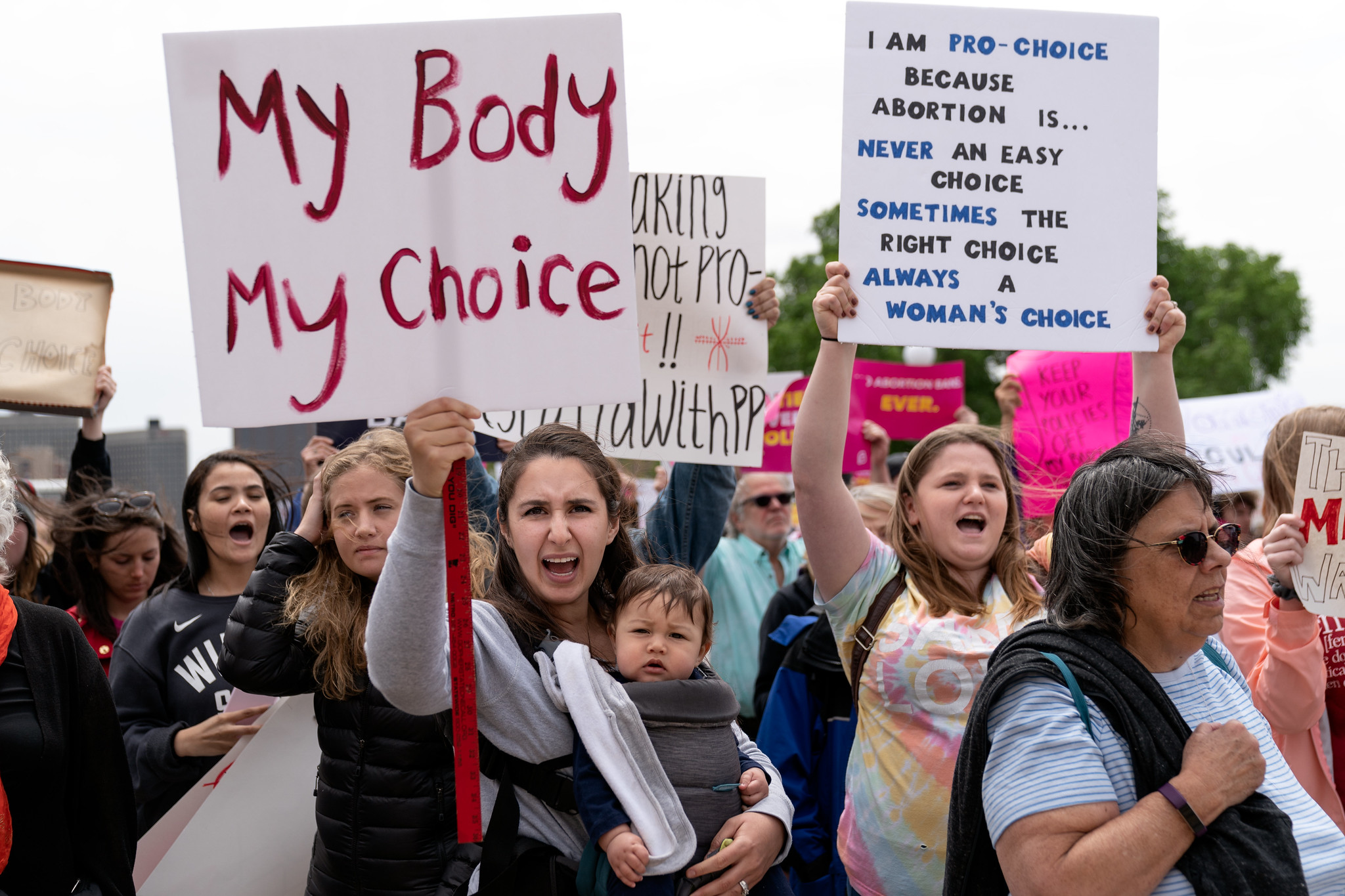
From pulpit to politics: the Catholic Church’s influence on reproductive rights
Last week, Pope Francis again weighed in on demographic change, this time accusing people who have pets but one or no children of selfishness. Refusing parenthood, according to the leader of the Catholic Church, makes people “lesser” and causes entire countries to “suffer” as they become older. As Population Matters’ Alistair Currie explained in a CNN op-ed, nothing could be further from the truth. PM researcher and policy adviser Monica Scigliano provides some context for the Pope’s remarks by examining the Catholic Church’s damaging positions and actions on sexual and reproductive rights.
The Church’s Teachings
Like adherents of other faiths, Catholic couples and clergy vary in their interpretations of what religious texts say about limiting family size through contraception. As a religious institution, however, the Catholic Church is unique among other religions in maintaining a prohibition on “artificial” (modern) contraception. The Church teaches that the purpose of sex is always procreation, so whether or not natural contraception (such as the rhythm method) is effective at preventing pregnancy is irrelevant. Pope Francis, to his credit, has offered a more progressive approach than his predecessors, implying that parents can and should limit their family size in order to better provide for their children, and bringing attention to environmental crises like climate change and biodiversity loss. Still, the Vatican has failed to make the connection between the population growth it encourages and the ensuing environmental and human suffering.

Waning Influence at the Pulpit
The feminist movements and contraception advancements of the past century have threatened the Vatican’s control over women’s reproductive decisions. In response, the Church has clung to pronatalism, or the promotion of child-bearing. For instance, in his teachings on the “theology of the body”, Pope John Paul II emphasised women’s “feminine genius” – that motherhood is their unique purpose in life.
Still, the Church’s influence over its followers has waned. In the US, abortion is just as common among Catholics as it is among other Americans, and 98% of sexually active Catholic women have used modern contraception. And a number of Catholic-majority countries have instituted extremely successful voluntary family planning programmes.
For example, thanks to its family planning programme, Costa Rica’s fertility rate decreased from nearly seven in 1960 to under two today. Consequently, poverty and natural resource depletion declined dramatically. The government took on an indirect role in order to not upset the Catholic Church, but Catholic and Protestant Christian clergy played a key role. Like many other faith leaders around the world, they recognised that family planning would benefit their communities by decreasing maternal and infant mortality and allowing families to provide more for each child. In Peru, Catholic priests also supported the use of oral contraceptives between the late 1960s and ’70s within the framework of responsible parenthood. The Vatican, unfortunately, has refused to acknowledge these benefits.
Papal Politics
Because the Church has failed to prevent many of today’s one billion Catholics from using family planning services, the Vatican has turned to politics, intervening in many countries and intergovernmental organisations in an attempt to limit contraception and abortion or maintain existing restrictions.
In Ireland, for example, the Catholic Church was able to prevent abortion legalisation until just a few years ago. Similarly, Argentina only recently legalised elective abortion – until 2020, the Church made that impossible. Pope Francis reportedly lobbied Argentina’s legislators himself.
Unlike in Ireland and Argentina, the Church continues to control Polish politics. Just one year ago, Poland enacted a draconian law that almost entirely bans abortion, now even in cases of foetal abnormality. The bill was written by Catholic NGO Ordo Iuris, which has infiltrated the Polish government. Ordo Iuris originated in Tradition, Family, Property, an international right-wing Catholic group that aims to ban same-sex marriage, contraception, abortion, divorce, and sexuality education. In Poland, these efforts go beyond abortion bans: the government appointed a Catholic theologian to re-write the country’s new sexuality education curriculum. She has claimed that contraception leads to “hedonism, sex addiction and a tendency to betray”, and unsurprisingly, the new curriculum mentions sex only twice. Population Matters’ recent report, Welcome to Gilead, details the reproductive rights violations propagated by right-wing Catholics and other pronatalists in Poland and beyond.
In the US, right-wing Catholics have joined forces with Evangelicals to form several anti-abortion organisations, like the World Conference of Families, Alliance for Defending Freedom, and the misleadingly named “Population Research Institute”. These groups have supported political efforts to shape a conservative Supreme Court, where the majority of justices are now conservative Catholics. Just last month, the Supreme Court heard arguments in one of the most serious threats to abortion rights in the past half-century. This has helped anti-choice Catholic groups achieve unprecedented success in passing abortion restrictions in several states, as well as limiting US funding for family planning in developing countries.

Growing the Flock
The Catholic Church’s efforts to restrict reproductive rights are perhaps most detrimental in Africa, where Catholicism is growing faster than on any other continent. European colonisers imported their versions of Christian patriarchy to their African colonies. Catholic France even passed a 1920 law forbidding promotion of contraception, both in France and in its colonies, in a bid to increase the population from which it could draw soldiers. In Francophone Africa, this law was not repealed until long after independence – in some cases in the 1990s.
The Catholic Church is also a major source of healthcare and education in many African countries, allowing it to spread its views and restrictions on sexual and reproductive rights. And while the Church has done immense good through its provision of aid in the region, its position on contraception has had tragic effects on the spread of HIV/Aids. Pope Benedict XVI repeatedly warned during his visits to Africa that condoms worsen the Aids crisis, stating that “the fabric of African life, its very source of hope and stability, is threatened by… a contraception mentality.”
The Vatican has also succeeded in limiting contraception and abortion in low-income countries through its role in UN. The Holy See enjoys special access within the UN, which has allowed it to block UN family planning and proposals, and to remove family planning from development goals and budgets.
Catholics for Change
While the Vatican has negatively impacted countless lives through its stance on family planning, there are many Catholic individuals and organisations, like the Religious Coalition for Reproductive Choice and Catholics for Choice, that oppose Church doctrine. The ‘Washington 50’, a group of DC-area Catholic priests, immediately rebelled against the 1968 Humanae Vitae ban on artificial contraception – 39 were subsequently stripped of their credentials. And at the beginning of the COVID-19 pandemic in 2020, the Archbishop of Uganda encouraged women to use contraception during lockdowns to prevent unwanted pregnancies, despite criticism from other members of the Church. Catholics across the world recognise that the innumerable benefits of voluntary family planning – for both people and planet – are very much in line with their religious beliefs. It’s time for the Church to follow suit.



